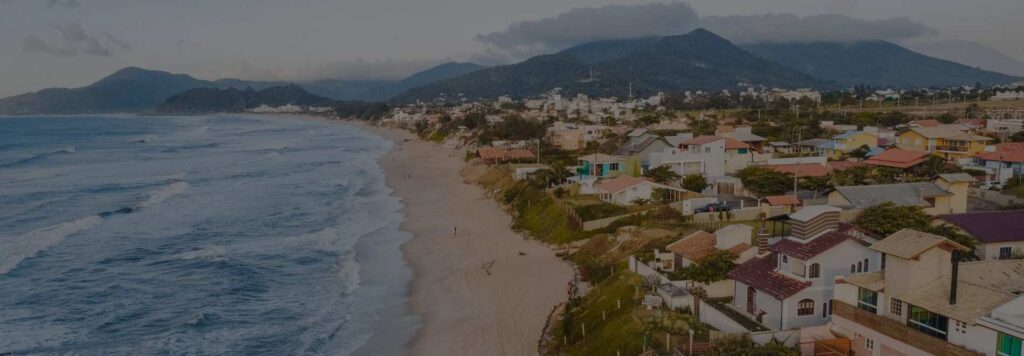Brazil has become central refuge for asylum seekers for its open refugee law and respect for human rights. The country protects people fleeing violence, discrimination, or deadly situations.
If you are considering asylum in Brazil, this guide will provide key facts about the Brazil refugee policy, including asylum seekers’ process, rights, and obligations.
Who can seek asylum in Brazil?

According to Brazilian law, the primary legislation governing asylum states that it should be granted to individuals who meet the criteria specified by the 1951 Refugee Convention established after the World War II, the 1967 Protocol, which expanded the Refugee Convention, and Brazilian Refugee Law (Law No. 9,474/1997).
Anyone can seek refuge in Brazil if they’re being persecuted back home because of:
| Criteria | Description |
|---|---|
| Race | External appearance such as skin color, facial features, and hair texture |
| Ethnicity | Cultural, linguistic, or ancestral traits |
| Religion | A belief system centered around the worship of a higher power or god |
| Nationality | Country of origin |
| Sexual orientation | Emotional, romantic, or sexual attraction to others |
| Political stance | Positions on politics or aligning with specific ideologies or political parties |
| Affiliation in a particular social group | Culture, profession, or social status |
| War | Conflict between nations or groups involving armed forces and sifnicant violence. |
| Human rights abuses | Violations of basic freedoms and rights through discrimination, torture, and unfair treatment by governments or powerful entities. |
How to Get Asylum in Brazil

- Entering Brazil and making your case: After arrival, forcibly displaced people must inform the Federal Police (Polícia Federal) of their intention to seek protection in Brazil. This can be done at all ports of entry into Brazil, whether land, air, or sea.
- Filing the asylum application: The asylum seeker must fill out an official asylum request form at the Federal Police station. A temporary pass will allow the applicant to stay in Brazil while their case is being looked over.
- Submitting documents: Asylum seekers must provide any documents they arrived in Brazil with to support their asylum claim.
- Attend asylum interview: The National Committee for Refugees (Comitê Nacional para os Refugiados–CONARE), an agency under the Ministry of Justice, will carry out an interview to assess the claim.
- Awaiting a decision: Due to a high volume of applications, the Brazilian asylum process can take several months or even years. However, applicants have the right to legally stay and work in Brazil while their case is under review.
Brazil Asylum Rights and Privileges

While awaiting a decision, forcibly displaced people in Brazil are entitled to:
- A document (Protocolo de Solicitação de Refúgio) that allows them to stay legally in the country.
- The right to work and obtain a work permit (Carteira de Trabalho e Previdência Social – CTPS).
- Access to public healthcare (SUS) and public education.
- Protection from deportation until a final decision is made.
- Free legal assistance from non-governmental organizations such as Caritas Brasileira, Pastoral do Migrante, and Missão Paz, as well as public defenders.
Struggles Faced by Asylum Seekers

Despite Brazil’s pledge to refugee protection, asylum seekers might come across obstacles such as:
- Red tape in the asylum decision process
- Communication challenges, as Portuguese is Brazil’s official language
- Limited housing and employment, especially in populated areas with high resource demand
- Prejudice and xenophobia, though Brazilians are known to be welcoming
Brazil Citizenship
Outcome of the Asylum Application
If the asylum request is approved, the individual is granted Brazil refugee status and receives a CRNM (Carteira de Registro Nacional Migratório) to stay legally in Brazil indefinitely.
Denied applicants can appeal the decision within a specified period or seek other legal avenues for residency.
Brazil Citizenship for Asylum Seekers

The standard minimum residency period to get Brazilian citizenship by naturalization is four years. Asylum seekers in Brazil have a shorter timeframe of two years to apply for citizenshipafter they’ve been granted asylum. Besides two-years residency, individuals with refugee status in Brazil must:
- Show an ability to speak and understand Portuguese
- Earn a stable income
- Have a clean criminal record in Brazil and abroad
Your trust, our priority
Have confidence in your Brazil asylum claim with Brazil Visa Solutions. Drawing on the extensive experience of our highly qualified Brazil immigration lawyers, we offer expert guidance to help you secure asylum in Brazil.
Get it touch with us to book a free consultation.
Frequently Asked Questions about Brazil Refugee Policy
Is it easy to seek asylum in Brazil?
Brazil has a lenient refugee policy, and the process is relatively straightforward for asylum seekers arriving in Brazil to make their own asylum arguments without assistance.
What are the benefits of asylum in Brazil?
The Brazilian refugee policy fully protects those seeking asylum in the country, including healthcare, education, and employment.
Can Brazilians apply for asylum in the US?
Per international law, Brazilians have the right to apply for asylum with USCIS (United States Citizenship and Immigration Services).
However, the current state of US politics may make seeking refuge in the United States highly unpredictable due to the country’s immigration policies and frequent policy changes between administrations. The US immigration system is overburdened, leading to long delays, and there is increasing hostility toward immigrants.
How many asylum seekers are in Brazil?
According to the UN Refugee Agency, Brazil received over 790,000 asylum seekers as of June 2024, including individuals from Venezuela, Haiti, Cuba, Syria, and Ukraine.
Can LGBT people claim asylum in Brazil?
Brazil LGBT asylum stretches back many years. The country granted two Ugandan LGBTQ activists refuge in 2016 as they faced imprisonment due to advocating for LBTQ rights.
As part of the United Nations High Commissioner for Refugees (UNHCR) efforts to resettle LGBT individuals fleeing violence, Brazil became one of the first countries in the Americas to establish a refugee resettlement program specifically targeting vulnerable LGBT individuals.





